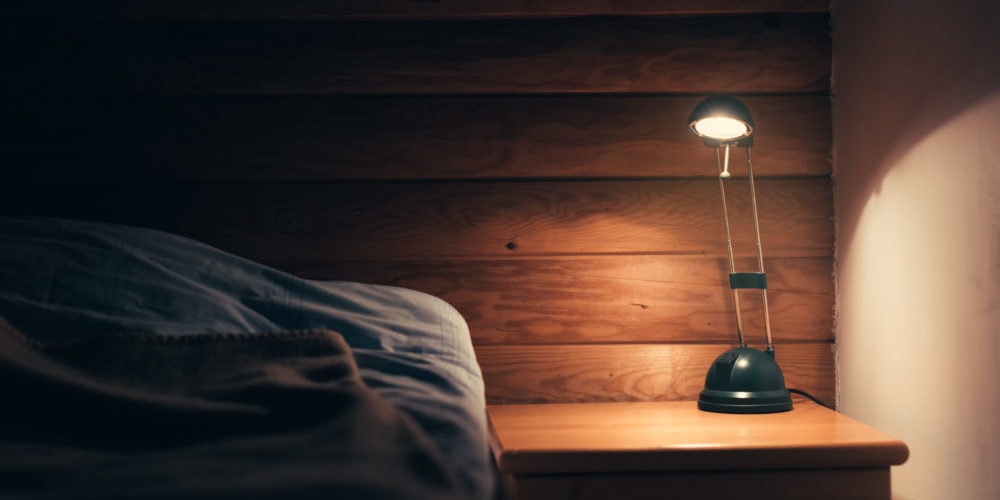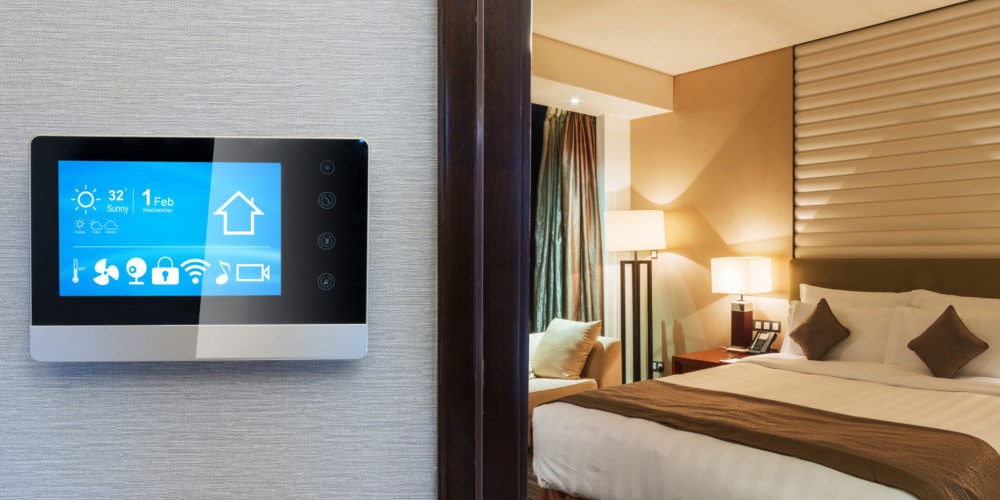
In today’s frantic, hectic world, where there are only so many hours in a day to get it all done, sleep is often the thing that we sacrifice.
And there’s a certain badge of honor that comes with sleeping less. It’s the, “I’ll sleep when I’m dead mentality.”
Yet this mentality ends up hurting you far more than it helps.
Whether you’re a stressed-out college student cramming for finals, a driven professional facing a deadline, or a young working parent struggling to hold it all together, the quantity and quality of the sleep you get is crucial to your productivity and sanity.
It’s a Catch-22. You feel like you need to sleep less to get it all done, but by sleeping less you actually make yourself less productive.
We all do it, and we know it. We burn the proverbial candle at both ends, sacrificing sleep and making up for it with caffeine and power naps.
We’ve long heard that the body needs about 8 hours of sleep per night. And while the clock may say you’re getting that much, your body may be saying something else. Your sleep is fitful and interrupted, and you wake up already needing a nap.
This highlights a critical point: it’s not just the amount of sleep you get, but the quality as well.
This means that in order to be truly productive, you need to optimize both your sleep schedule AND the quality of your sleep.
And while this all sounds great…you feel stuck. You want to commit to getting more and better sleep, but you have so much to do. And you also know that a lack of sleep is keeping you from reaching your full potential.
How can you escape the Catch-22 you’re in?
In this article, we’re going to give you a simple, step-by-step guide to both getting more and optimizing your sleep. In the next few minutes, you’ll learn the key steps to getting unstuck.
The Problem With Sleep Deprivation
 We often think of sleep as a passive, inactive time when our body is simply powering down and resting. While it may seem that way from the outside, sleep is actually an incredibly active time where our body, specifically the brain, is performing critical functions that allow us to wake up refreshed and ready for another day.
We often think of sleep as a passive, inactive time when our body is simply powering down and resting. While it may seem that way from the outside, sleep is actually an incredibly active time where our body, specifically the brain, is performing critical functions that allow us to wake up refreshed and ready for another day.
In fact, research has demonstrated that the energy used by the brain doesn’t decrease during sleep. So what exactly is the brain up to during that time?
Memory Consolidation
One critical process that happens in the brain during sleep is known as memory consolidation. During the day, our brains acquire an enormous amount of new information which needs to be processed, organized, remembered, etc.
Consolidation refers to the process where memories become stable, moving from short-term memories to long-term. It’s believed that this process happens during sleep.
It’s safe to say then, that if you’re not getting a good night sleep, this process of consolidation can be disrupted, causing memory lapses and cognitive impairment.
Problems with recall can, to state the obvious, diminish both productivity and performance. That student cramming for finals into the wee hours of the night is probably inadvertently doing more harm than good.
Waste Removal
In addition to cataloging memories during sleep, the brain is also busy dumping waste. A recent study demonstrated that the brain’s system of waste removal is surprisingly active during sleep.
The glymphatic system clears toxins from the brain which can be responsible for Alzheimer’s disease and other devastating neurological disorders. During sleep, the brain is busy cleaning house. Providing it ample, optimal time to do this dirty work might be key to our long-term neurological health.
And it’s not just the brain that needs sleep to maintain optimal health. The rest of your body can be affected negatively by a lack of quality sleep as well. Research has linked a lack of sleep to a host of serious diseases, including obesity, diabetes, and heart disease.
It’s no surprise then that poor sleep quality is associated with a lower life expectancy. While a lack of sleep may not cause these health issues, it is an important factor to consider.
How Much Sleep Do You Really Need?
We’ve all heard that the standard for sleep is 8 hours, but is that a scientific fact, general guideline, or old wives tale? After all, most of us can function on far less, or at least we think we can.
Turns out that the 8-hour number is actually a scientifically proven baseline that we should all strive for.
Numerous studies have proven that people who consistently get 7-8 hours of sleep a night have better attention spans and cognitive ability than those who do not. In fact, over a two-week study, people who slept only 6 hours a night showed significant cognitive impairment on par with someone who had been sleep-deprived for 24-hours. In fact, they were compared cognitively to a person who was legally drunk.
Put another way, if you’re trying to power through on only 6 hours of sleep, you might as well be drinking a few beers before you show up to work. You certainly won’t be able to perform like you should.
Consistently getting around 8 hours of quality sleep where your brain can clear toxins, store memories, and reset itself for the next day is critical to good health and optimal cognitive performance.
How To Get the Quantity and Quality of Sleep You Need
We know that 8 hours of uninterrupted sleep is the goal, but how do you make that happen consistently? Additionally, how to ensure that 8 hours is optimized so that your body can achieve all it needs to?
Establishing a few simple evening rituals might be simpler than you think, and can make all the difference.
Light

Our bodies are designed to respond to light or lack thereof. For millennia, people woke up with the sun and went to bed when it set, establishing a natural rhythm for wake and sleep. The modern age with electricity and light and screens has changed that and to our detriment.
Start preparing your body for what it wants to do, sleep, by dimming lights and turning off screens well before bedtime. This is easier said than done in our technological age, but this can have a huge effect on the quality and quantity of your sleep. A few tricks to help with this:
- As bedtime approaches, dim the lights in your house, especially the bedroom.
- Turn off computers, televisions, and smartphones an hour before bedtime. If, for some reason, you can’t do that, at least utilize a blue-light filter to reduce interruption of your body’s circadian rhythm.
- Hang blackout curtains in your bedroom to reduce light from street lamps, a full moon, and early morning sunshine.
- Even the smallest of lights in your bedroom should be eliminated. Put a strip of electrical tape over lights coming from your computer charger or similar tiny LED lights.
- Use a sleep mask if all else fails.
Schedule
As much as you might like to stay up late and sleep in on the weekend, establishing a consistent bedtime and wake up time is key to getting a full night’s sleep every day. Helping your body establish a natural, consistent rhythm for sleep and wake will help you fall asleep, and stay asleep every night.
Sound
You might think that total quiet is the key to a good night’s sleep. That’s not necessarily true. In fact, many people find that if it’s too quiet, they have trouble sleeping. Additionally, achieving total quiet is impossible for most people unless they live in rural areas with little traffic noise.
Consider sleeping with a white noise machine, especially if you’re a person awakened by every little noise in the night. It’s generally not the little noise that wakes you, but the sudden change in sound frequency that jarrs you awake. Drowning out some of those little disruptive noises with a white noise machine may help keep your sleep from being disturbed.
Beverages
Two beverages that many of us love can sadly have a negative effect on sleep.
Caffeine
You might think that afternoon cup of coffee is a necessary pick-me-up that doesn’t affect falling asleep at bedtime, but it might be keeping you from getting the quality of sleep you need. Studies show that caffeine can lower levels of melatonin, a hormone necessary for regulating sleep. Less melatonin means less REM sleep and more daytime tiredness. Avoid caffeine after 2 PM to allow it to be flushed from your system well before bedtime.
Alcohol
While that glass of wine in the late evening might seem to relax you and help you fall asleep, it might actually be disturbing your sleep later on in the night. Studies have consistently proven that alcohol disrupts REM sleep, which is the deep sleep marked by rapid eye movements when the brain conducts its most restorative work. Avoid alcohol close to bedtime to ensure your body gets into that deep stage of sleep and stays there as long as it can.
Temperature

The cooler the better when it comes to bedroom temperature, at least where sleep is concerned. Studies demonstrate that a cool room, around 65 degrees, is optimal for sleep as it helps support the body’s natural tendency to cool down during the night.
Bump down the air conditioner, open the windows, invest in a fan, or even take a cold shower before bed to get your body temperature low and primed for a good night’s sleep.
Additional tips for sleeping well
- Creating a peaceful sleep environment by clearing clutter from the bedroom and painting it a calming color like a soft blue might help promote a restful night of sleep.
- Placing a notebook and pen by your bedside to jot down those thoughts that pop in your head as you’re trying to fall asleep can help clear your brain and give you some peace of mind before sleep.
- Meditating, praying, or reading a comforting piece of literature might relax your mind and ready you for rest.
Conclusion
Sleep is important to our health and productivity, yet too many of us devalue it by inadvertently doing things to hinder it, or sacrificing it all together. If you try to survive on scarce amounts of sleep, you’re going to see your productivity plummet.
Optimizing your sleep is just one example of how simple changes can help you reach your full potential – if you’re willing to make them.
If you want more information on small changes that produce big results, take a couple of minutes to complete our Productivity Quiz. In just 10 minutes, you’ll discover how to get unstuck, create more time in your day, and achieve the success you deserve.

Hi there,
I clicked on a link for “Thoughts on Productivity, Outcomes, and Output” on this page https://www.asianefficiency.com/?s=outcomes and ended up here. Just FYI!
Great tips! Thank you:)
Good stuff. I believe the medical community is now calling all of your recommendations, “sleep hygiene.” Some folks may need a sleep study — I did! I’m even trying essential oils and special sounds to improve my sleep quality.